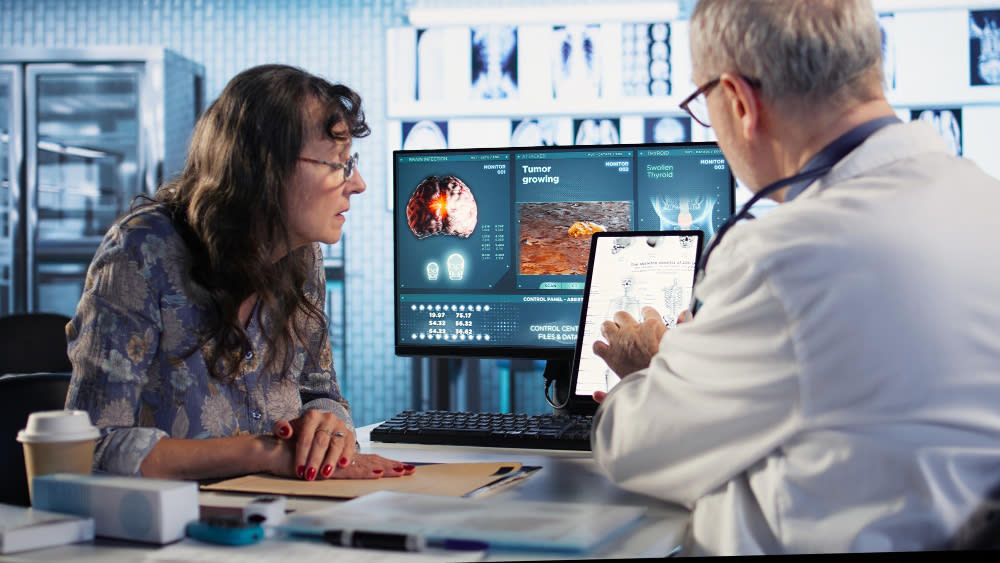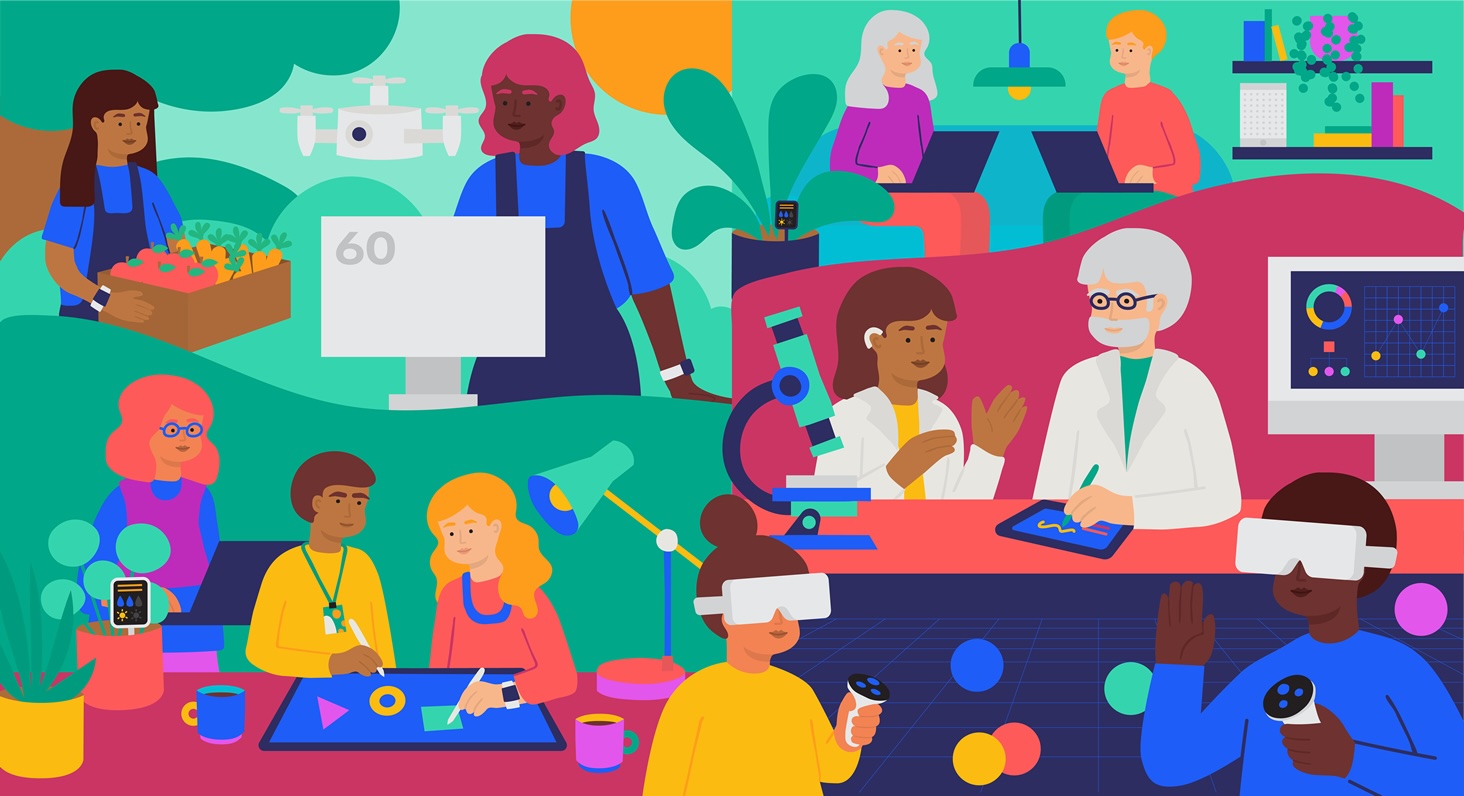How Medical App Development Is Transforming Healthcare in 2025

Introduction
The healthcare industry has been undergoing a digital transformation, and 2025 is poised to be a landmark year for medical app development. From telemedicine to AI-driven diagnostics, medical apps are playing a crucial role in making healthcare more accessible, efficient, and patient-centered. A medical app development company is at the forefront of these innovations, creating solutions that enhance patient care, streamline hospital operations, and improve doctor-patient communication.
This article explores the latest trends, technologies, and innovations shaping the medical app development industry in 2025 and how they are revolutionizing healthcare.
The Growing Need for Medical App Development
As the demand for digital healthcare solutions rises, medical app development companies are experiencing a surge in projects that cater to various aspects of healthcare, such as remote consultations, health monitoring, and electronic health records (EHRs). Factors contributing to this growing need include:
Increase in Chronic Diseases: More patients require long-term monitoring and management of conditions like diabetes and heart disease.
Telehealth Boom: The COVID-19 pandemic accelerated the adoption of telemedicine, making virtual healthcare a necessity.
Technological Advancements: AI, IoT, and blockchain are enhancing the capabilities of medical apps.
Demand for Patient-Centric Care: Patients expect easy access to medical services through their smartphones.
Regulatory Support: Governments and health organizations are endorsing digital healthcare solutions to improve healthcare accessibility and efficiency.
Key Trends in Medical App Development for 2025
1. AI and Machine Learning in Healthcare Apps
Artificial intelligence (AI) is revolutionizing healthcare apps by enabling predictive analytics, automated diagnostics, and personalized treatment plans. A medical app development company can integrate AI algorithms to:
Detect diseases at an early stage (e.g., skin cancer detection apps).
Enhance radiology and pathology diagnostics.
Provide AI-powered chatbots for instant medical assistance.
2. Telemedicine and Remote Patient Monitoring
Telemedicine continues to expand in 2025, making healthcare accessible to patients regardless of their location. Features like video consultations, digital prescriptions, and AI-driven symptom checkers are becoming more sophisticated. Remote patient monitoring (RPM) apps allow continuous tracking of patients’ health parameters using wearable devices, benefiting those with chronic illnesses.
3. Wearable Technology and IoT Integration
The integration of wearable technology with medical apps is transforming preventive care. Medical app development companies are leveraging IoT to develop apps that sync with smartwatches, fitness bands, and medical-grade devices, enabling real-time monitoring of:
Blood sugar levels for diabetics.
Heart rate and ECG readings.
Oxygen saturation levels (pulse oximetry).
These advancements help doctors monitor patients remotely and intervene in case of abnormalities.
4. Blockchain for Secure Health Data Management
Data security and privacy remain top concerns in healthcare. Blockchain technology ensures secure, decentralized, and tamper-proof storage of medical records. A medical app development company integrating blockchain can:
Prevent unauthorized access to patient data.
Enable secure sharing of health records among healthcare providers.
Reduce fraud and ensure compliance with HIPAA regulations.
5. Augmented Reality (AR) and Virtual Reality (VR) in Healthcare
AR and VR technologies are enhancing medical education, surgery simulations, and pain management. Medical apps equipped with AR/VR can:
Provide interactive 3D anatomy lessons for medical students.
Assist surgeons with augmented reality overlays during complex procedures.
Help patients with PTSD and anxiety through immersive therapy.
6. Personalized Healthcare Through Big Data and Analytics
Big data analytics is driving personalized medicine, where treatments are tailored based on a patient’s medical history, genetic profile, and lifestyle. Medical apps powered by big data can:
Offer personalized fitness and diet plans.
Predict health risks based on lifestyle habits.
Analyze large datasets to improve patient outcomes.
7. Voice-Enabled Healthcare Apps
Voice assistants like Siri and Alexa have inspired the development of voice-enabled medical apps that allow users to:
Schedule doctor appointments using voice commands.
Receive medication reminders.
Access symptom-based health guidance.
This trend is particularly beneficial for elderly patients and those with disabilities who may struggle with touchscreen navigation.
How Medical App Development Companies Are Driving Innovation
A medical app development company plays a pivotal role in shaping the future of healthcare by:
Developing HIPAA-Compliant Apps: Ensuring that medical apps adhere to strict security and privacy regulations.
Enhancing UI/UX for Better Accessibility: Creating intuitive designs that cater to diverse users, including seniors and individuals with disabilities.
Implementing AI-Powered Decision Support Systems: Assisting doctors with AI-driven insights to improve clinical decisions.
Integrating Multi-Platform Support: Ensuring apps function seamlessly across iOS, Android, and web platforms.
Offering Cloud-Based Solutions: Storing patient data securely on cloud servers for easy accessibility by healthcare providers.
Benefits of Medical App Development for Healthcare Providers and Patients
For Healthcare Providers:
Improved patient engagement and satisfaction.
Reduced workload through automated scheduling and digital records.
Better diagnosis and treatment planning with AI-powered insights.
For Patients:
Easy access to healthcare services from home.
Personalized health tracking and reminders.
Secure digital storage of medical history and prescriptions.
Challenges in Medical App Development
Despite the benefits, medical app development companies face several challenges, including:
Regulatory Compliance: Meeting strict healthcare regulations like HIPAA and GDPR.
Data Security Concerns: Ensuring robust encryption and cybersecurity measures.
Integration with Existing Healthcare Systems: Making apps compatible with legacy hospital software.
User Adoption: Encouraging doctors and patients to embrace digital healthcare solutions.
Future Outlook of Medical App Development
The future of medical app development is promising, with continuous advancements in AI, blockchain, and IoT. By 2030, we can expect:
Fully AI-powered virtual doctors providing primary healthcare consultations.
Widespread adoption of 5G-enabled remote surgeries.
Digital twins for personalized healthcare simulations.
A medical app development company that stays ahead of these trends will be instrumental in shaping the next generation of healthcare solutions.
Conclusion
Medical app development is at the heart of healthcare transformation in 2025, enhancing accessibility, efficiency, and patient care. With AI-driven diagnostics, telemedicine, wearable integration, and blockchain security, the future of healthcare looks more digital and patient-focused than ever before.
For healthcare institutions and startups looking to develop cutting-edge medical apps, partnering with a medical app development company that understands regulatory compliance, security, and user experience is crucial. As technology continues to evolve, these innovations will pave the way for a smarter, more connected healthcare ecosystem.
Words: 999
link




